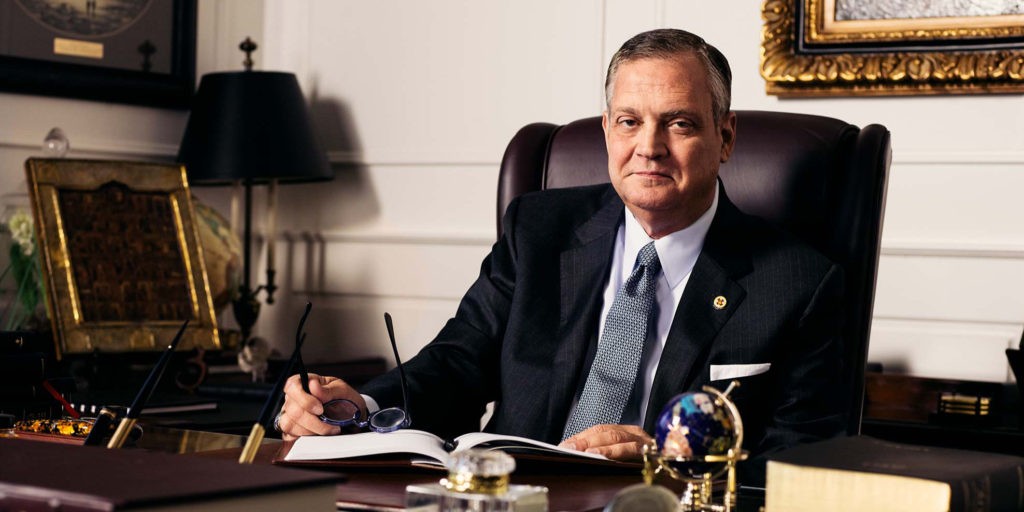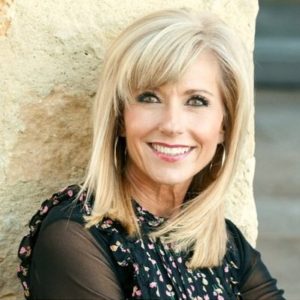Southern Baptist seminary president Albert Mohler, who once long ago advocated women’s ordination, now says females should not preach from the pulpit on Sunday morning.
“If you look at the denominations where women do the preaching, they are also the denominations where people do the leaving,” the 59-year-old president of Southern Baptist Theological Seminary in Louisville, Kentucky, said May 10. “I think there’s just something about the order of creation that means that God intends for the preaching voice to be a male voice.”
Responding to a question during an “ask anything” podcast, Mohler said he is a bit surprised by recent controversy about whether “complementarianism” – the idea that men and women are created for different and complementary roles – precludes women from teaching or holding authority over men.

Albert Mohler
“It’s a question of authority,” Mohler said. “I think that’s what makes people nervous, but the apostle Paul makes that argument ‘I forbid a woman to have authority over a man.’ This is where you go back to the original controversy in evangelicalism and in Southern Baptist life. What really was the key issue is biblical authority. Did the Holy Spirit inspire Paul to say that or not?”
“If the Holy Spirit did inspire Paul to say that, then it’s the word of God,” Mohler said. “It’s not just written to one place and one time. The very fact that he’s writing to Timothy in a general epistle means this is clearly for the entire church. And the patterns he gives also in the First Corinthians letter, it appears by any honest interpretation of Scripture to have general applicability.”
While a student at Southern Seminary, Mohler helped collect signatures for a full-page ad in the Louisville Courier-Journal protesting a 1984 Southern Baptist Convention resolution excluding women from pastoral functions and leadership roles that entail ordination.
The ad affirmed “equal participation of women and men in the life of the church,” a “responsible interpretation of the biblical message in its totality, recognizing its affirmation of the roles of women and men” and “traditional Baptist polity, which recognizes the autonomous character of each local Baptist church, and allows for no institution, individual or convention to speak for Southern Baptists.”
Mohler, elected as Southern Seminary’s ninth president in 1993, says he changed his mind on women’s ordination after a conversation with theologian Carl F.H. Henry, who told him, “One day, this will be a matter of great embarrassment to you.”
In 2000 Mohler served on a committee that updated the Baptist Faith and Message, the denomination’s doctrinal statement, to specify that: “While both men and women are gifted for service in the church, the office of pastor is limited to men as qualified by Scripture.”
“If complementarianism is going to mean anything, then it’s got to mean at its very base that where you see the church gathered for worship, it’s a man qualified by Scripture – not just any man, but it’s a man qualified by Scripture – who is fulfilling that teaching role and filling that teaching office,” Mohler said in Friday’s podcast. “So if you’re asking me should a woman preach in the church gathered for Lord’s Day worship, I would say no.”

Beth Moore
Contention over the issue of women in ministry in Southern Baptist life broke out recently on social media when prominent Bible teacher and author Beth Moore challenged a professor who singled her out for encouraging women to preach.
“I am compelled to my bones by the Holy Spirit – I don’t want to be but I am – to draw attention to the sexism and misogyny that is rampant in segments of the SBC, cloaked by piety and bearing the stench of hypocrisy,” Moore said in a series of tweets May 11.
Moore said she had “the eye opening experience of my life in 2016,” interpreted by many as a reference to strong evangelical support that helped elect President Donald Trump.
“All these years I’d given the benefit of the doubt that these men were the way they were because they were trying to be obedient to Scripture,” she continued. “Then I realized it was not over Scripture at all. It was over sin. It was over power. It was over misogyny. Sexism. It was about arrogance. About protecting systems. It involved covering abuses and misuses of power. Shepherds guarding other shepherds instead of guarding the sheep.”
Previous story:
Debate over women in Southern Baptist pulpits flares on social media
Related commentary:
Women cannot serve as pastors. Really, Southern Baptists, you’re going to go there again?
